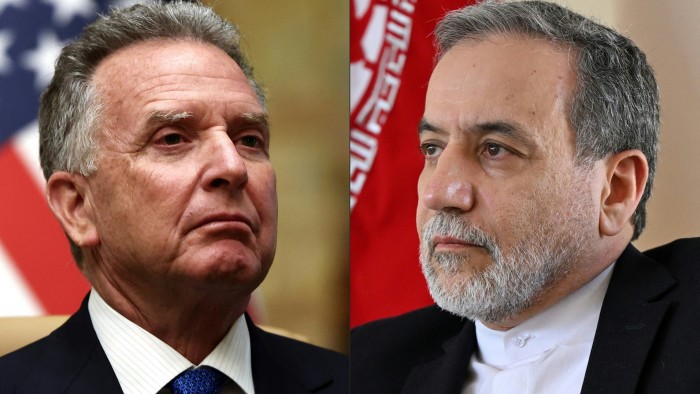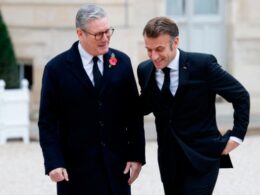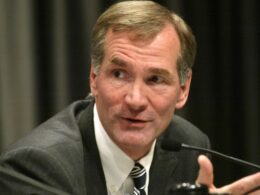Unlock the White House Watch newsletter for free
Your guide to what the 2024 US election means for Washington and the world
US envoy Steve Witkoff has signalled that the Trump administration may be willing to ease its demands on Iran ahead of a second round of talks for a deal to rein in the Islamic republic’s nuclear advances.
Senior US officials have previously said that Washington wanted to push for the dismantlement of Iran’s nuclear programme, suggesting that the republic would be prevented from enriching uranium.
But speaking on Fox News’ Hannity programme, Witkoff said Iran did not need to enrich past 3.67 per cent, a low level of purity that was the cap set by the 2015 accord Tehran signed with the Obama administration and other world powers.
That agreement collapsed after US President Donald Trump in 2018 unilaterally withdrew the US from the deal, known by its acronym, the JCPOA, and imposed waves of sanctions on the republic as part of his so-called maximum pressure campaign. Iran responded by dramatically increasing its nuclear activity and has been enriching at levels up to 60 per cent, which is close to weapons grade, for four years.
Trump’s national security adviser Mike Waltz last month said the administration was seeking the “full dismantlement” of Iran’s programme.
But Witkoff, who held indirect talks with Iranian foreign minister Abbas Araghchi in Oman on Saturday, said: “They do not need to enrich past 3.67 per cent.
“In some circumstances, they are at 60 per cent, in other circumstances, 20 per cent. That cannot be, and you do not need to run, as they claim, a civil nuclear programme, when you are enriching past 3.67 per cent,” Witkoff told Fox late on Monday. “So this is going to be much about verification on the enrichment programme and then ultimately verification on weaponisation.”
Witkoff described his first meeting with Araghchi, a veteran nuclear negotiator, as “positive, constructive and compelling” and the pair are due to hold a second round of talks on Saturday.
In his first public comments since the negotiations began, Ayatollah Ali Khamenei, Iran’s supreme leader, said on Tuesday that the talks had “started off well”.
But he advised his negotiating team to “proceed cautiously”.
“We should be neither excessively optimistic nor extremely sceptical of these negotiations,” Khamenei said. “We are highly distrustful of the opposite side, but we do have trust in our own capabilities.”
He added “the red lines are clear both to us and the other party”.
Diplomats and Iranian analysts said that giving up Iran’s right to enrich uranium domestically would be a red line for Khamenei, as Tehran seeks a deal similar to the JCPOA, which put strict limits on its nuclear activity in return for sanctions relief.
Trump on Tuesday suggested that Iran was delaying progress towards a deal, saying: “I think they are tapping us along.” The US president has repeatedly said he wants a deal to end the long-running crisis, but has threatened military action if diplomacy fails.
“Iran has to get rid of the concept of a nuclear weapon,” he said.
Iran insists its nuclear programme is for civilian purposes only. While it now has the capacity to produce sufficient fissile material required for nuclear weapons in a matter of weeks, weaponisation would take far longer.
The US’s intelligence community’s annual threat assessment report said last month that it continued “to assess Iran is not building a nuclear weapon and that Khamenei has not reauthorised the nuclear weapons programme he suspended in 2003”.
Source link









